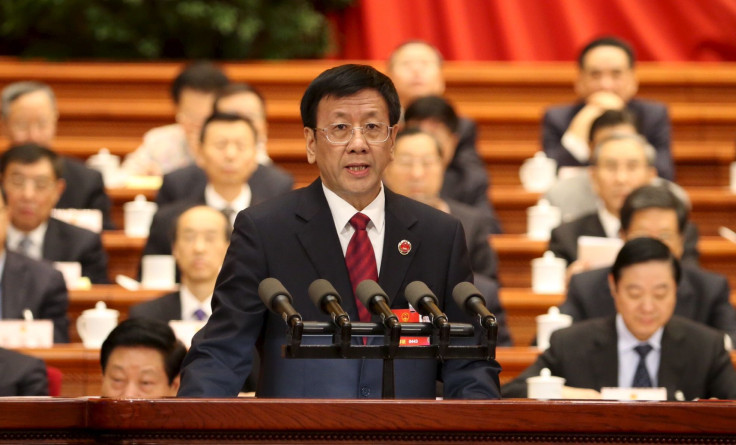China To Continue Crackdown On ‘Hostile Forces’ And Corruption In 2016, Top Prosecutor Says

China’s chief prosecutor Cao Jianming told officials Sunday that battling “infiltration, subversion and sabotage by hostile forces” would be the administration’s key priority this year. However, he did not identify specific groups and individuals as threats during his speech at the National People’s Congress in Beijing.
Cao, the procurator-general of the Supreme People's Procuratorate, also listed combating cybercrime and ensuring national sovereignty in cyberspace as key issues that need to be tackled in 2016. The country already blocks a wide range of foreign websites, including Google, Facebook, Twitter, and file-sharing sites such as YouTube as part of its campaign to protect its “national cyberspace sovereignty.”
In a separate address to the legislature, also on Sunday, China’s Chief Justice Zhou Qiang said that last year, Chinese courts convicted 1,419 people for terror-related offenses, and for participating in “secessionist” activities, in 1,084 cases.
“Chinese courts will well implement the laws on state security and counter-terrorism and severely punish terrorists and secessionists,” Zhou reportedly said.
Fighting corruption also remains a priority, Zhou and Cao said, adding that in 2015, Chinese prosecutors handled nearly 4,500 cases involving over 1 million yuan ($154,000), up 22.5 percent from 2014.
Last week, the Communist Party’s official graft watchdog — the Central Commission for Discipline Inspection — said that it had punished nearly 300,000 officials last year in a wide-ranging crackdown on corruption. Nearly 200,000 party members were given “light punishment” for corruption, while 82,000 received “heavy punishment,” the CCDI, which conducts internal investigations based on evidence it rarely discloses, said.
Since he assumed office in 2012, Chinese President Xi Jinping has initiated a massive campaign to fight corruption. The crackdown has netted several government officials, state-owned enterprises and the military, with the fallout affecting everything from prices of luxury goods in Hong Kong to gambling revenue in Macau.
Officials nabbed in the anti-graft drive include China's former security chief Zhou Yongkang, who was sentenced to life in prison in June and Liao Yongyuan, the former vice chairman of the oil giant PetroChina, who was accused of accepting “enormous” bribes.
"We will continue to maintain high pressure on corruption," the chief justice reportedly said.
© Copyright IBTimes 2025. All rights reserved.






















